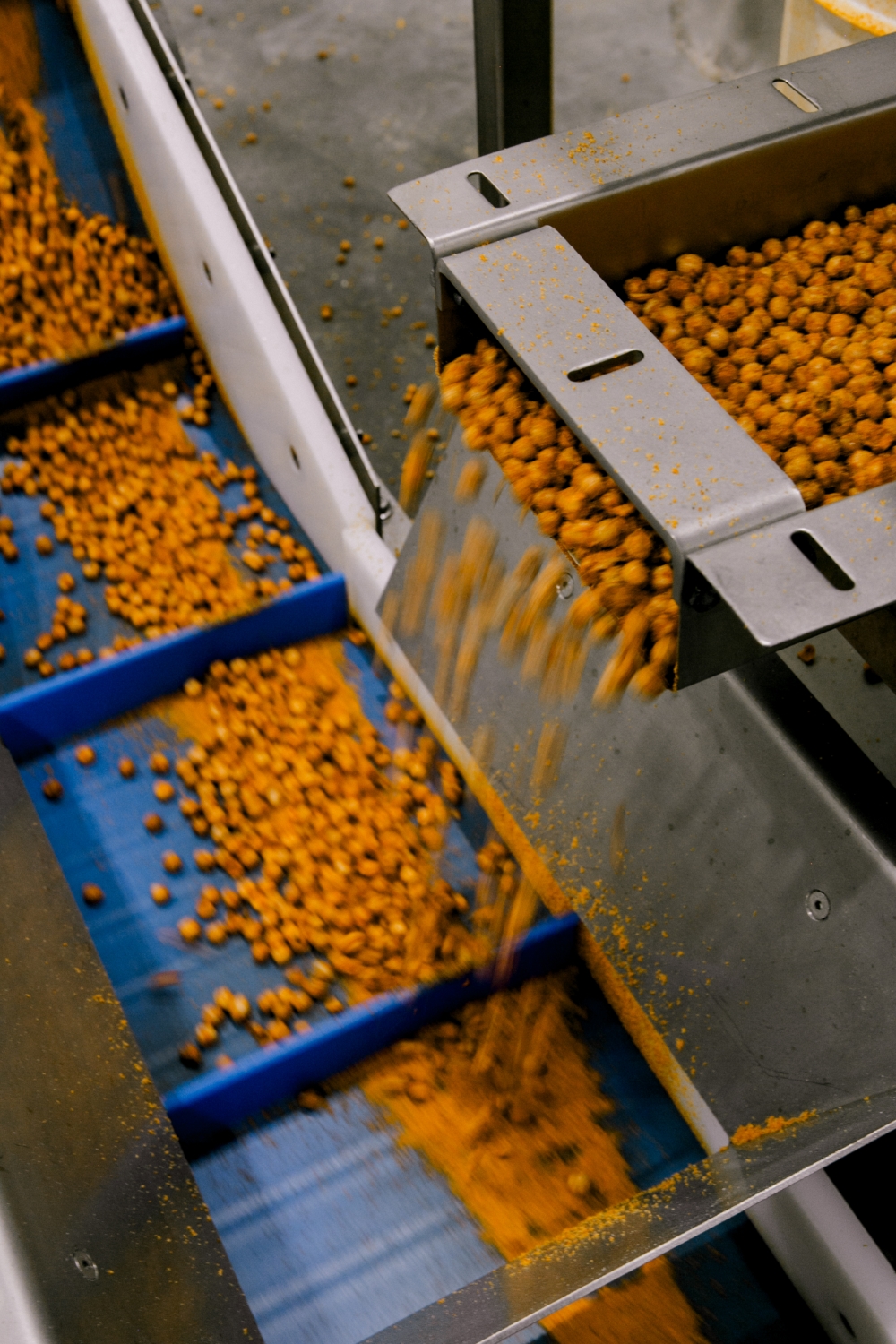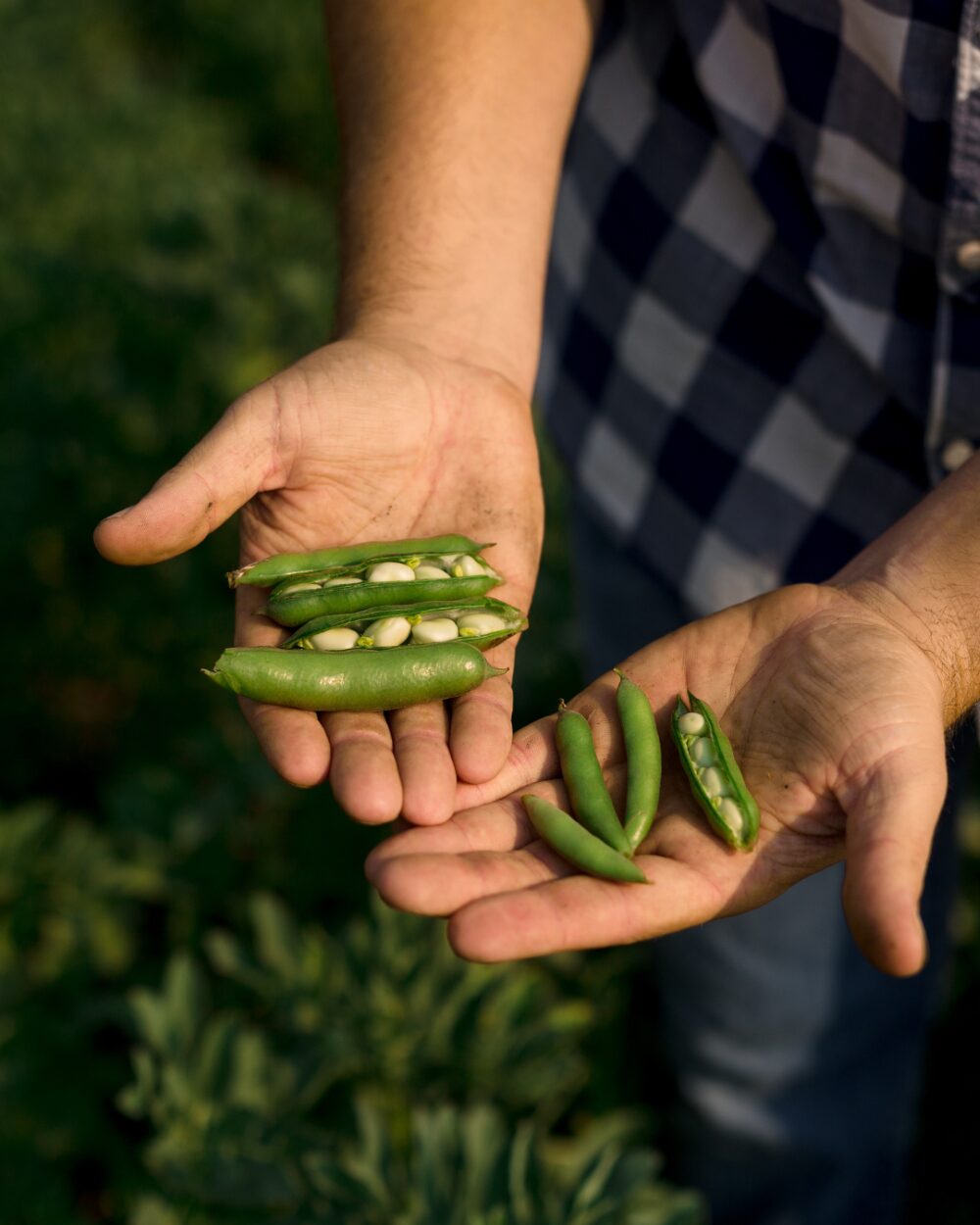How a daring idea became a successful food business.
My first lesson in value-added agriculture came from, of all people, the restaurateur turned politician Lester Maddox, the last segregationist governor of my native Georgia.
Around 1968, Gov. Maddox opened a speech to my mother’s women’s club with a story of how — as a precocious youngster — he would purchase peanuts by the bushel, haul them home to roast, then hawk them on the street during the evening rush at a cozy, little profit. So simple.
Canadian entrepreneur Natasha Vandenhurk recently schooled me as to how that premise still holds true, even where the process is dramatically more complex. Vandenhurk is co-founder and CEO of Three Farmers Foods in Saskatoon, Saskatchewan. Three Farmers converts lentils, chickpeas and fava beans — all grown in Saskatchewan and Manitoba — into tasty, nutritious and increasingly ubiquitous snack packages.
Wait. Beans as treats?
“It’s not like people wake up in the morning and think, ‘Hey, I’m gonna go snack on beans today,’” Vandenhurk told Site Selection in late November. “We’re building a category, and there’s a lot of work involved in that.”
Late Night Inspiration Was the Start
It began with a night of drinking at a Saskatoon curling rink. The brain trust consisted of Natasha, her sister Elysia — a chef — their father Dan and two of his farmer buddies. Hence, the name “Three Farmers.” Unlike many such epiphanies, the ideas hatched at the rink that night survived the searing light of morning.
“Here in Saskatchewan,” relates Natasha, “we’re used to just selling our products off as commodities and then buying them back in the grocery store, 10 or 20 or 30 times more expensive. It’s everybody’s dream to move up that value chain and add value here at home.”
“The values that were instilled in us growing up on a farm are helping to keep us going and making us successful here.”
— Natasha Vandenhurk, CEO, Three Farmers Foods
Nearly 15 years since launching, Three Farmers has survived numerous storms, not least the widespread shift toward “comfort food” eating during the COVID-19 pandemic.
Still, the business has thrived, having recently expanded its distribution chain to Costco stores in the U.S. Pacific Northwest, commercial airline flights and markets as far abroad as Singapore, Japan and Taiwan. Three Farmers’ 20-plus offerings include such delights as Barbeque Roasted Lentils, Sea Salt Lime Roasted Chickpeas, Sweet Chili Roasted Fava Beans, Sea Salt & Vinegar Roasted Lentils, Zesty Cheddar Roasted Fava Beans and its award-winning Dark Chocolate Roasted Chickpeas.

Three Farmers moves production in-house.
Having achieved pre-COVID, pre-inflation growth of up to 60% year on year, Three Farmers remains in expansion mode, having recently completed a $6 million buildout of its Saskatoon headquarters to claim 100% control of its production processes. Its headcount doubled to 35 full-timers.
“Most brands, especially new brands these days, save their capital for brand and market development and choose not to get into manufacturing,” Vandenhurk says. “For us, it’s been a massive undertaking and it’s taken us basically 18 months to come up for air and find our cadence. But we think it’s a worthwhile investment as more volume keeps coming through the door. We’ve managed to bring all the roasting, seasoning and packaging under one roof.”
Pulses & Impulses
Natasha grew up on her father’s 15,000-acre farm and has a degree in business economics from the University of Saskatchewan. Those parallel sets of knowledge inform Three Farmers’ approach to nurturing pulses — the edible seeds of legumes — into a snack that returns nearly 20 times the value of raw commodity price. The company’s air-popping process delivers a healthier snack than frying without surrendering flavor. Its annual volume approaches 700 tons of product.
“Pulses in North America have traditionally been seen as inconvenient to eat because of all the soaking, rinsing and cooking they take,” Vandenhurk explains. “For us, the value add is to take these inherently nutritious crops and make them tasty, more convenient and accessible to consumers.”
Other legs to the value-added stool, says Natasha, include sustainability, “radical transparency” and packaging. Three Farmers sources its fava beans directly from regional growers and its lentils and chickpeas from wholesalers in Saskatchewan and Manitoba, where sustainable farming practices — from direct seeding to intercropping and organic pest management — are long-since ingrained. Pulses, she says, seed the soil with needed nitrogen.
These and other messages the company seeks to deliver through its online presence and its packaging strategy, which is about to undergo a second, recent evolution.
“As the market changes and as we scale to reach more mainstream consumers, packaging becomes even more crucial,” she says. “It really needs to connect with consumers so that you get that impulse purchase off the shelf.”
Built on Grit
The vagaries of the food business, Vandenhurk has learned, are not for the faint of heart.
“I just woke up,” she says, “and learned that the U.S. is about to impose a 25% tariff on my product.”
But if there’s anything she’s learned it’s to roll with the punches, something fundamental to those who are raised on farms.
“I would say the key to our success is honestly just the work ethic that comes with growing up on a farm and the absolute grit and determination it requires,” she says. “The parallels I would draw between farming and this value-added business we’ve created is just dealing with constant unknowns and factors out of your control every single day. So, you learn to just control the things that you can, plan for the best and prepare for the worst, especially in an environment like we’re in today. So, yeah, the values that were instilled in us growing up on a farm are helping to keep us going and making us successful here.”

